The history of the Voortrekkers come alive in Pretoria, South Africa
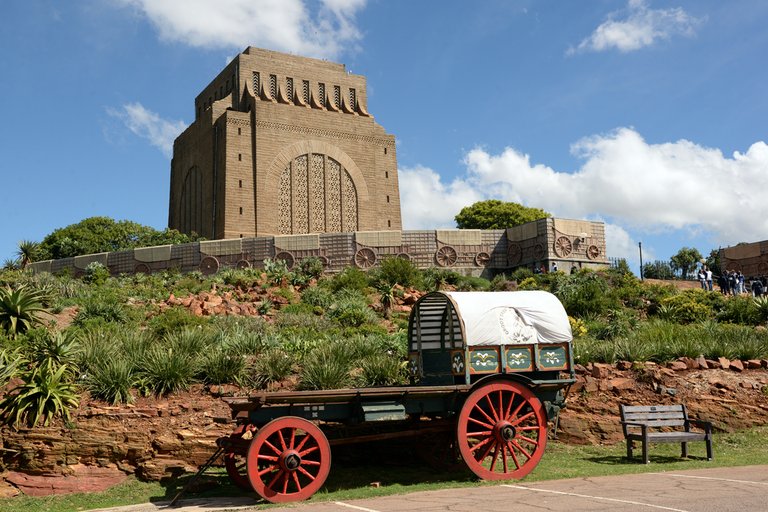
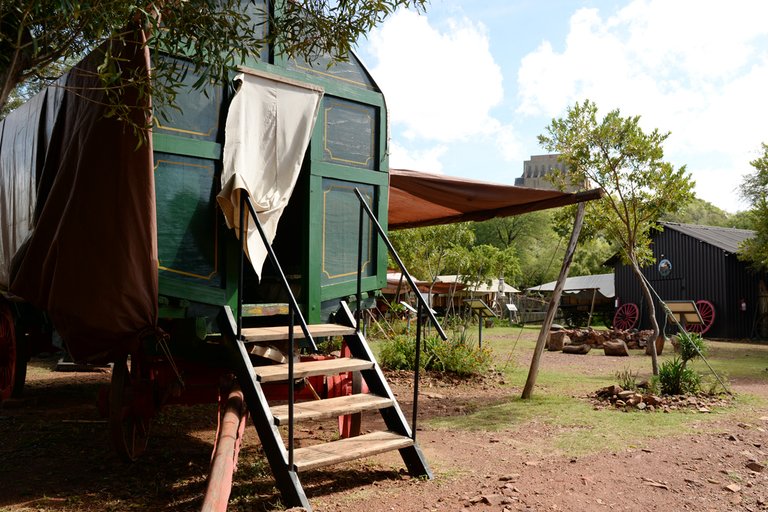
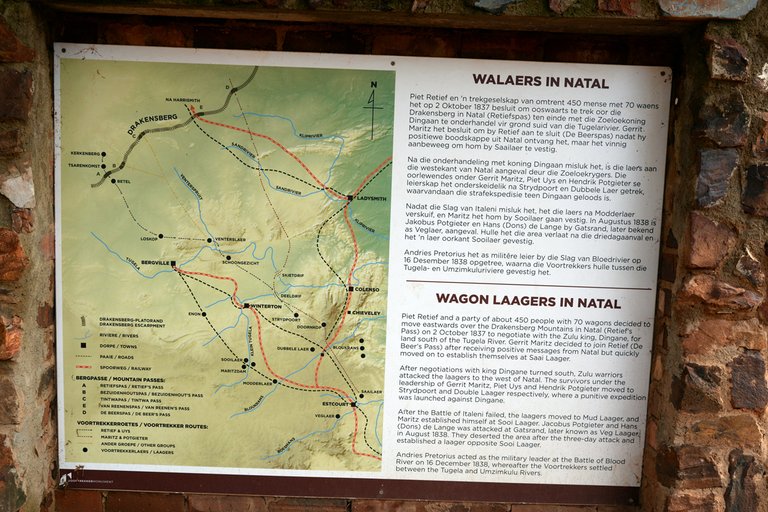
Our tour started at here. While our guide went to get the tickets, we had a look at the wagons and read the information boards. When she got the tickets, we walked up to the monument itself.
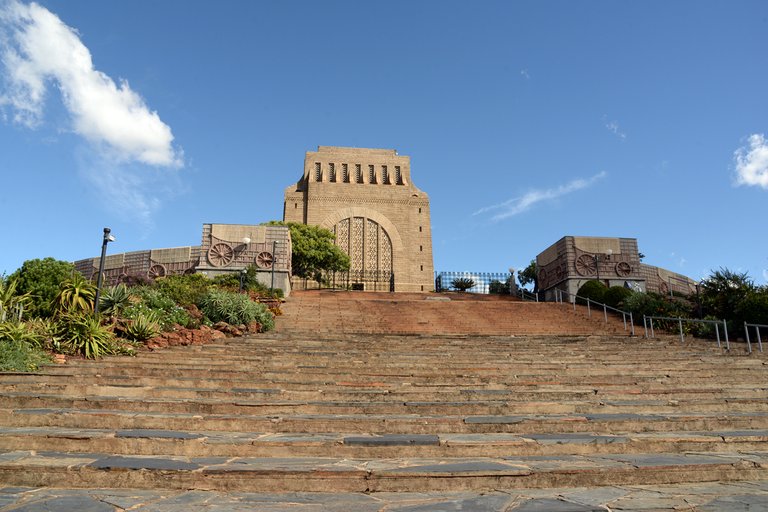
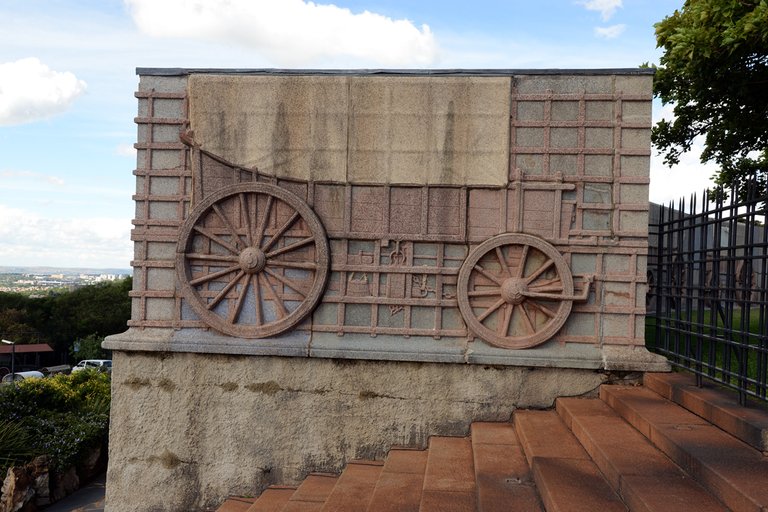
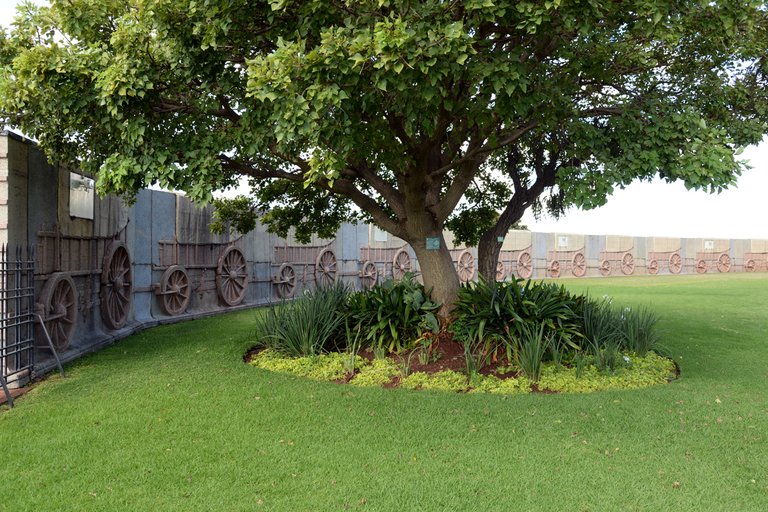
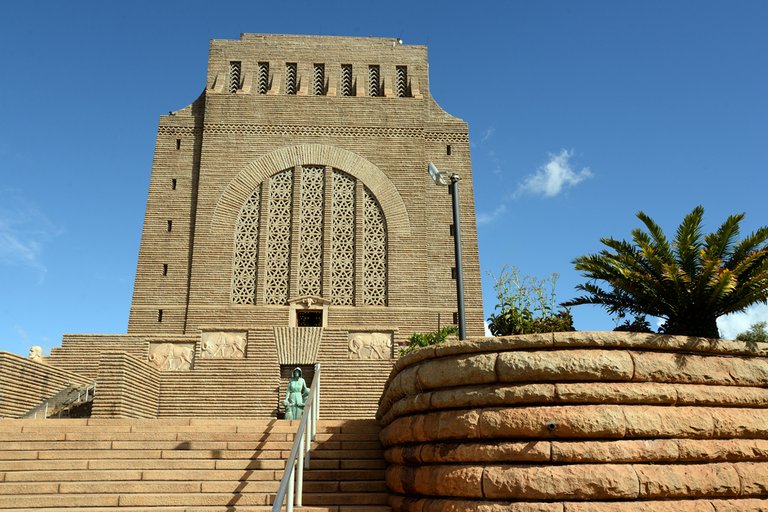
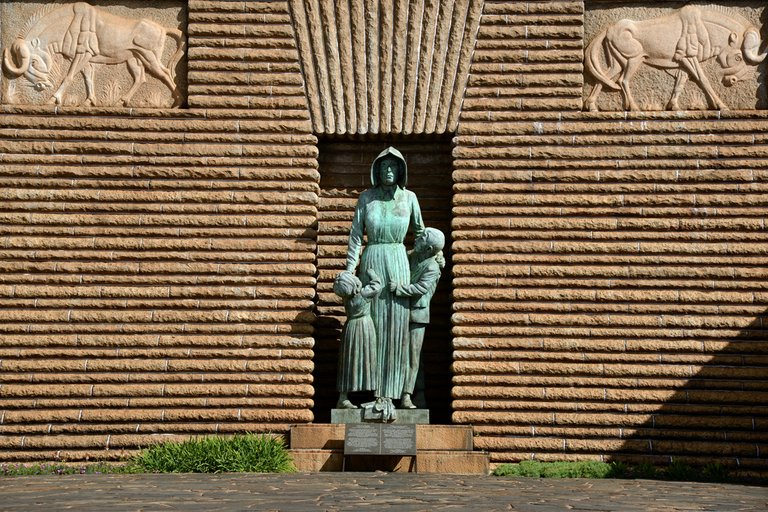
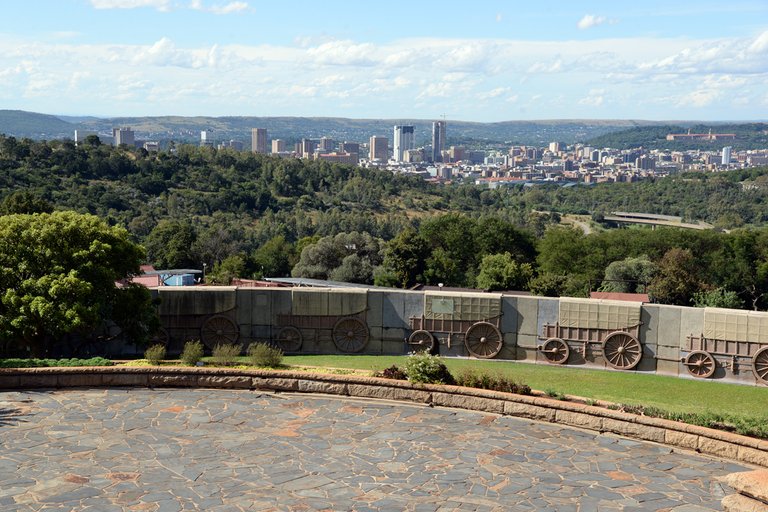
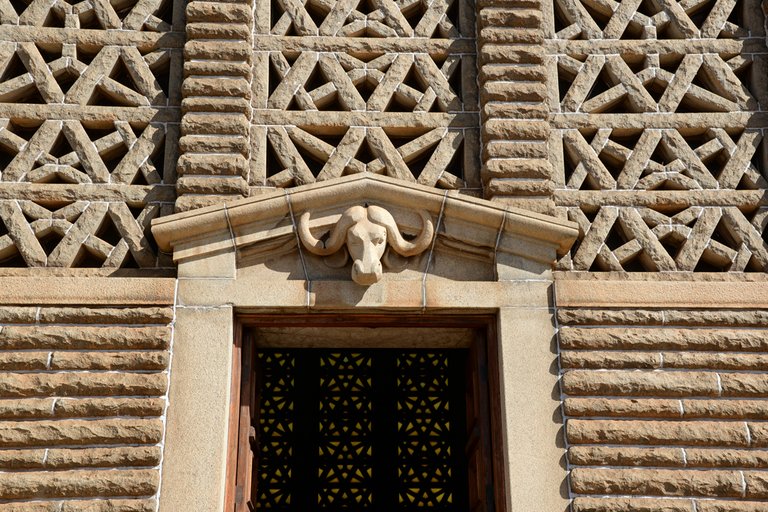
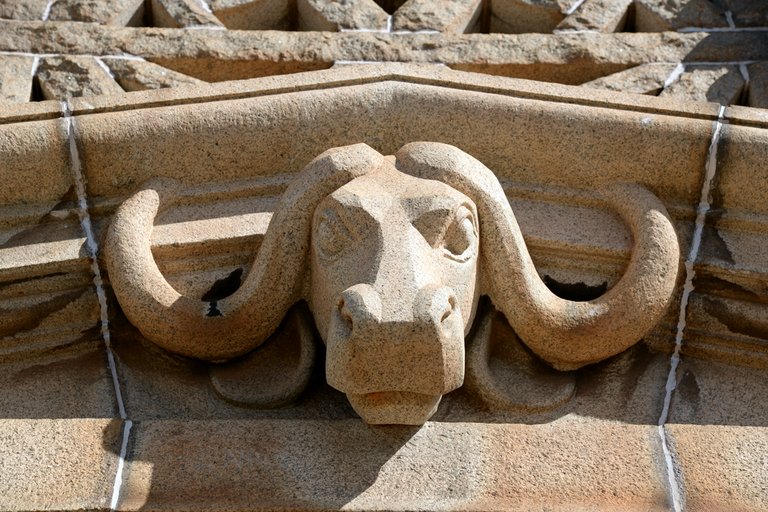
WHAT KIND OF MONUMENT IS THE WOORTREKKER MONUMENT
It's a huge, 40-meter-high granite structure. It’s located on a hill surrounded by a round wall. The wall has 64 carved ox-wagons all around. The Voortrekkers usually placed their wagons in a circle – a «laager» as our guide called it. In 2011 this monument was added to the list of National Heritage Sites. The construction of the monument started in 1938 when the first stone was laid by some of the descendants after the Voortrekkers. The statue of the woman with children is a tribute to the women. As our guide said. The men wouldn't have made without the women.
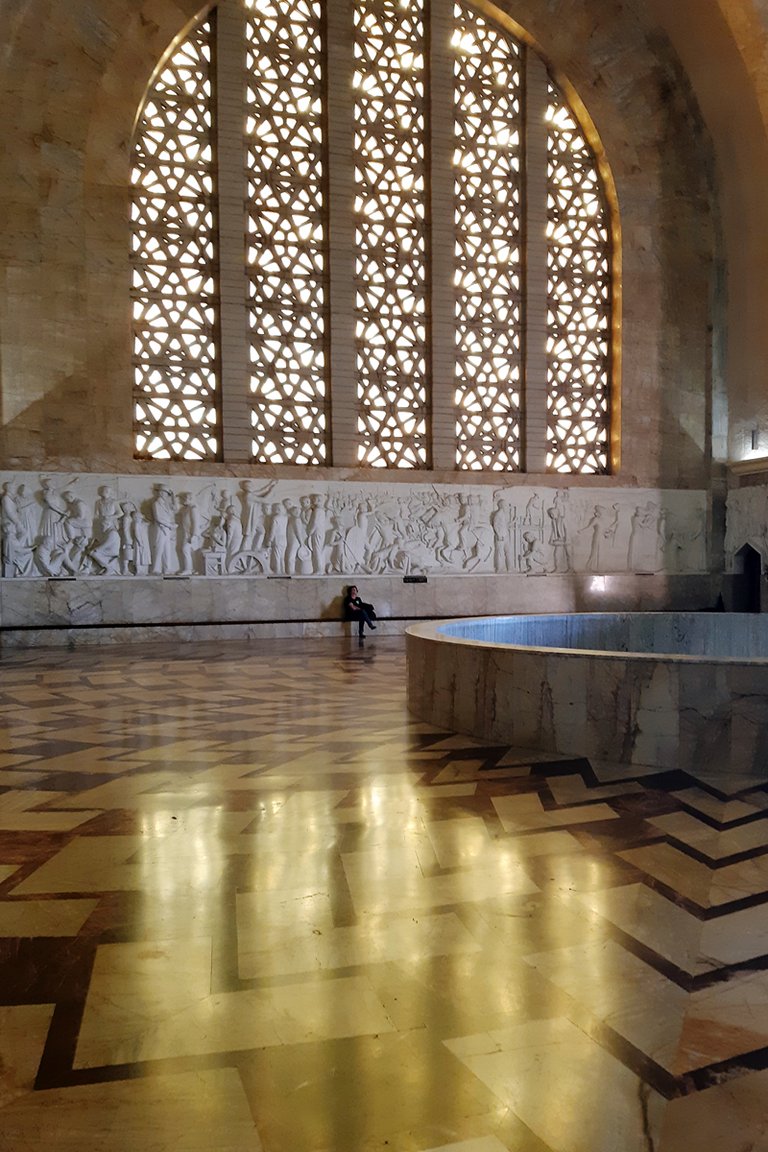
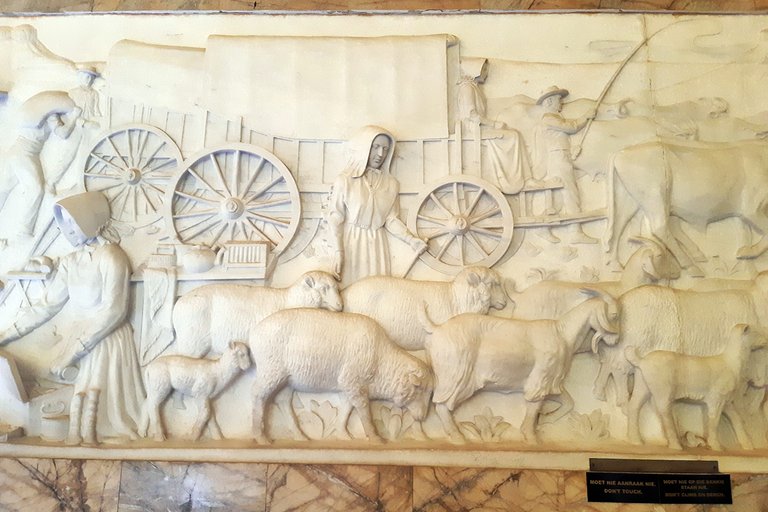 Leaving with everything they owned
Leaving with everything they owned
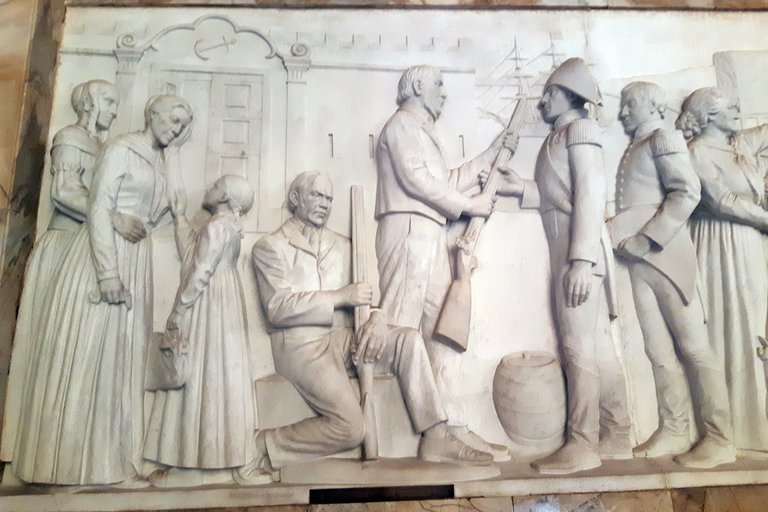
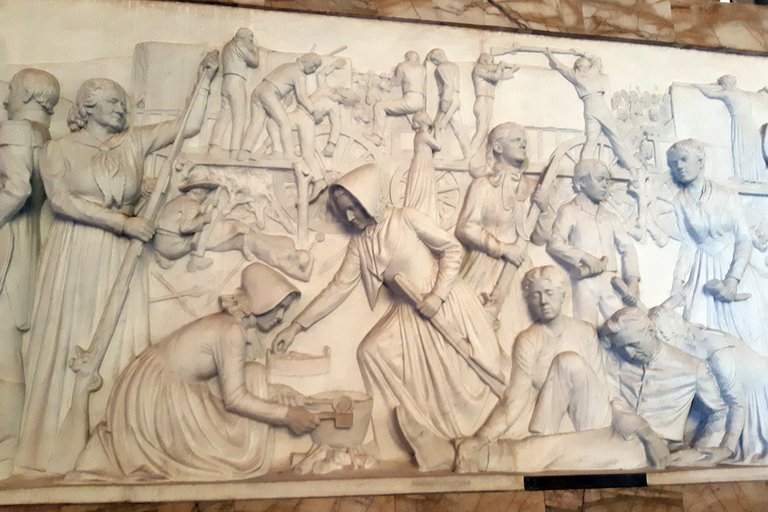
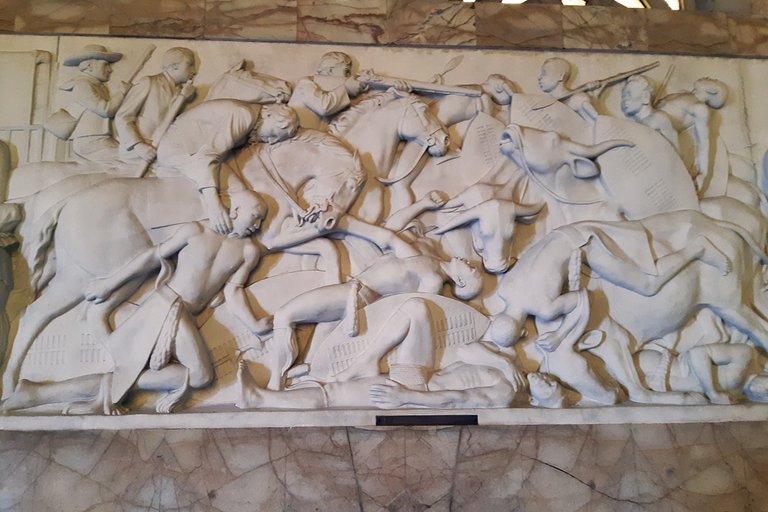
When we enter the monument, we enter a large hall. The walls are covered with a large marble frieze on each. These friezes depict the story of The Great Trek. It depicts everyday life of the Voortrekkers, but also what they experienced. Usually, they left in groups of families. The used ox – wagons. When they camped for the night, they would release the oxen and place their wagons in a laager / they placed the wagons in a circle for protection and defence.
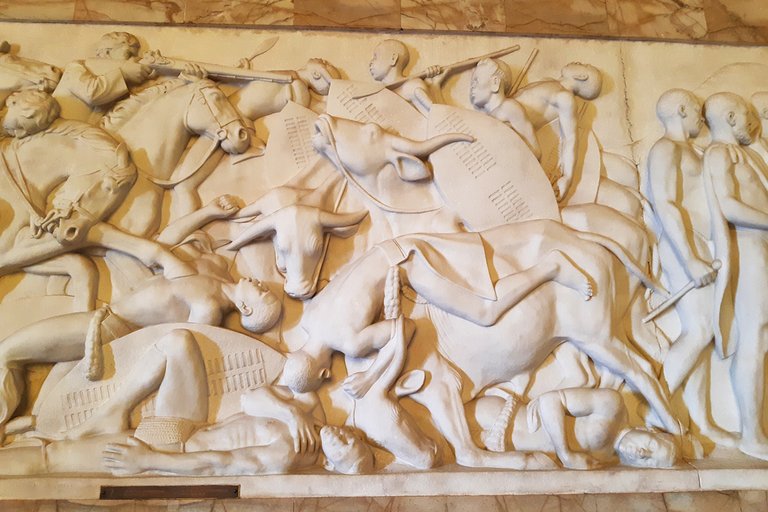
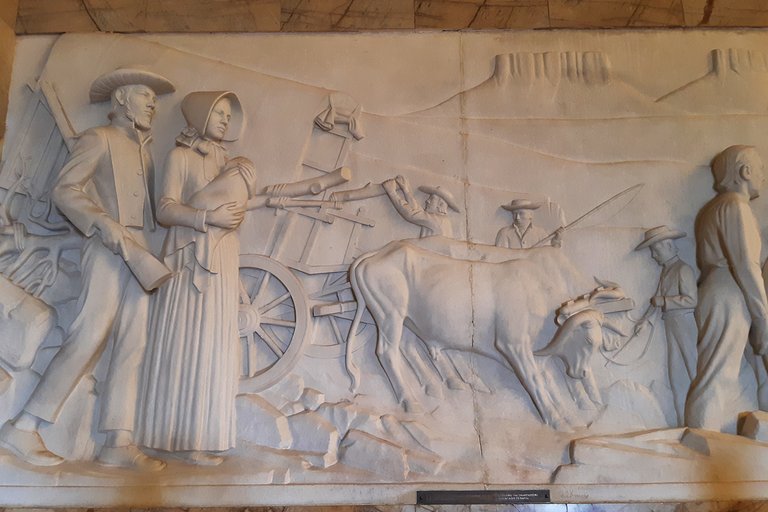
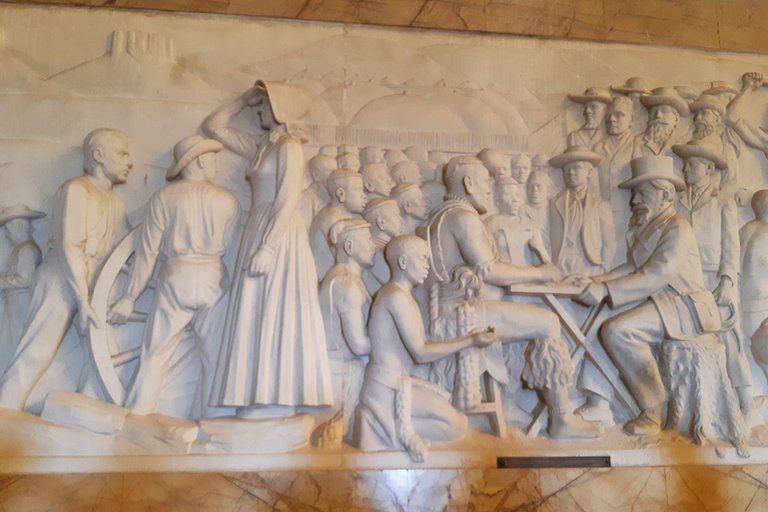
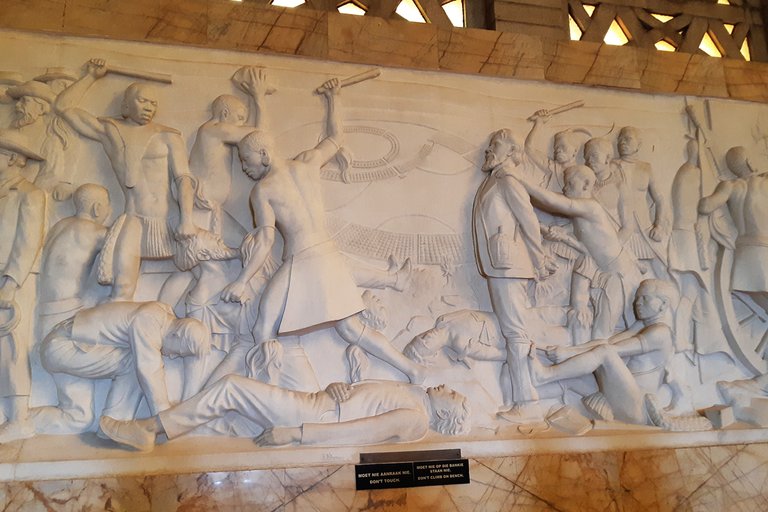
THE GREAT TREK
This migratory trek was going on from 1835 to 1845. It is estimated that 12.000 to 14.000 Boers migrated during this period. The Boers were called Voortrekkers meaning something like «early migrants in Afrikaans. They left in different parties. Most of them were farmers. Not all of them would take the same routes. After crossing the Orange River, they divided into different groups, depending on where they wanted to settle. During the trek they experienced battles with Zulu warriors armed with spears. But because they had guns, horses, skills, and defensive laagers they were able to defend themselves.
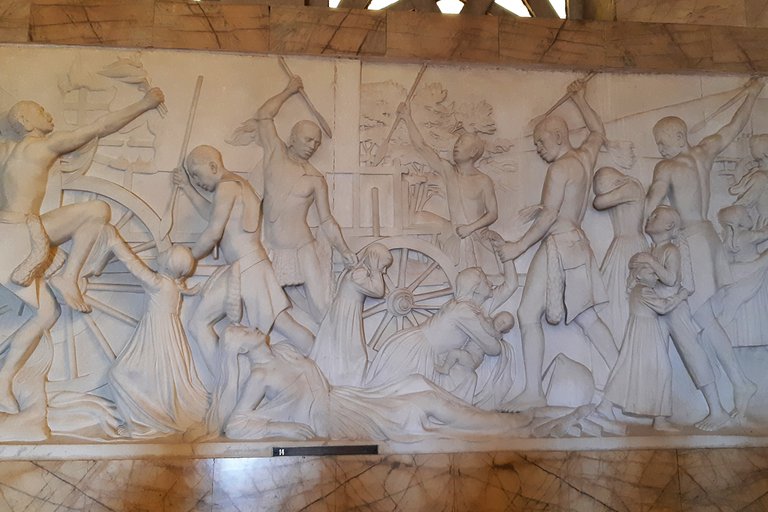

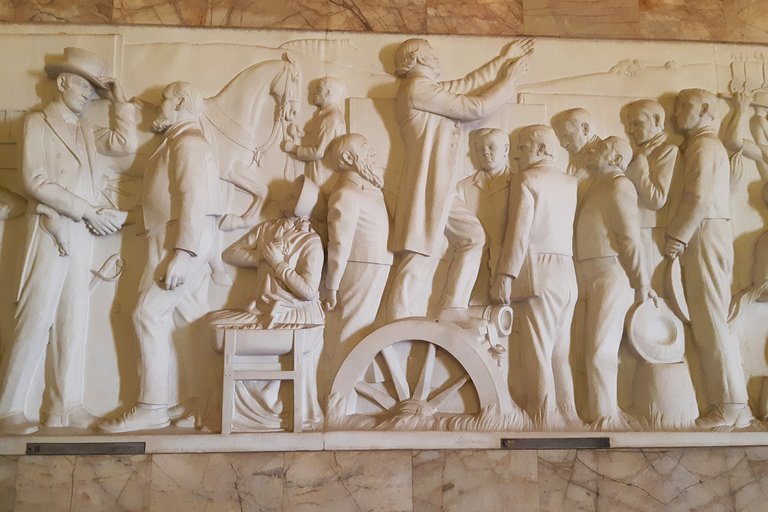
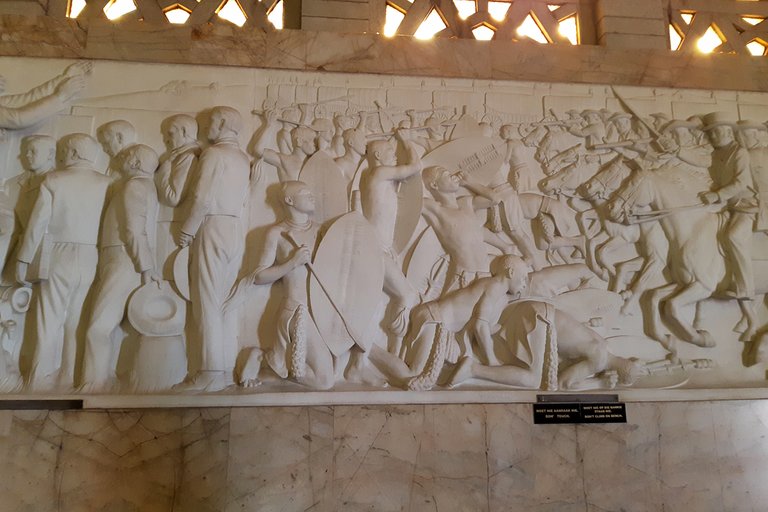
Many of those who set out on this journey never reached the Orange River. The journey was arduous. Occasionally they had to defend themselves. Both people and cattle were exposed to diseases that caused death to many of them. Our guide took us from the first frieze to the last one. A tour that tells the story of the Voortrekkers.
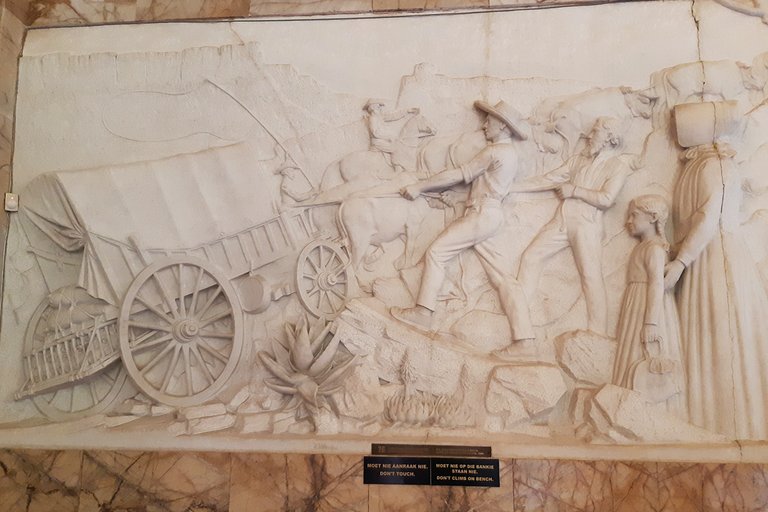
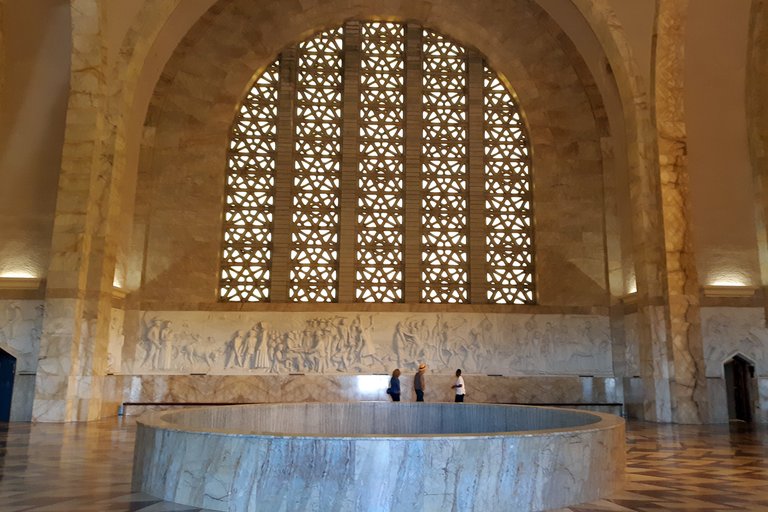
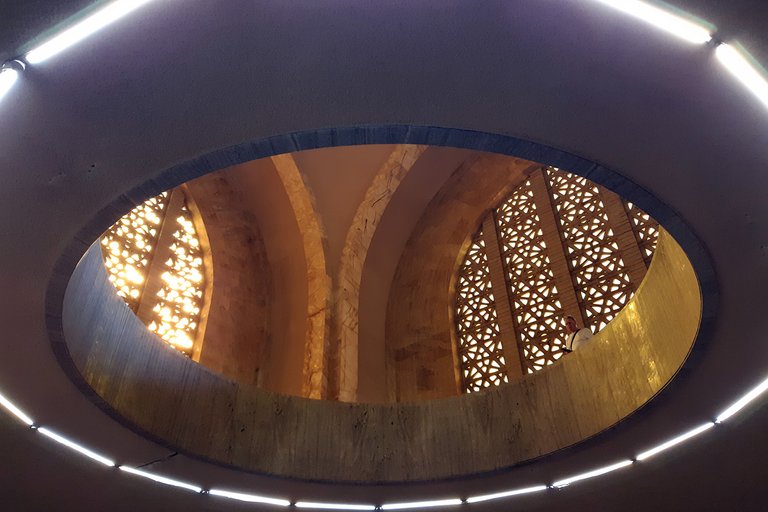
Our guide mentioned a few names of leaders several times. Piet Retif (1780 – 1838) was one of the Boer leaders. Before he went on the trek, he was known for experience in war against the Xhosa. The British put restrictions on slavery and gave land back to the Xhosa. Because of this sympathy from the British, he made his decision to migrate north. When his group was north of Orange River, they got together with other trekkers who made him their leader. After crossing the Drakensberg mountains (1837) he had to negotiate with Dingane, a Zulu leader, about the right to get some land. I am not quite sure about the story, but it had something to do with Retief helping the Zulus to get some cattle back. When he returned the cattle to Dingane, both he and many in his group were murdered. But only aprox. half a year later, the Voortrekkers mananged to defeat the Zulus at Blood River. Both Retief and Dingane were mentioned by our guide many times. So were a few other important leaders. These marble friezes do depict visually the story about all these people had to cope with.
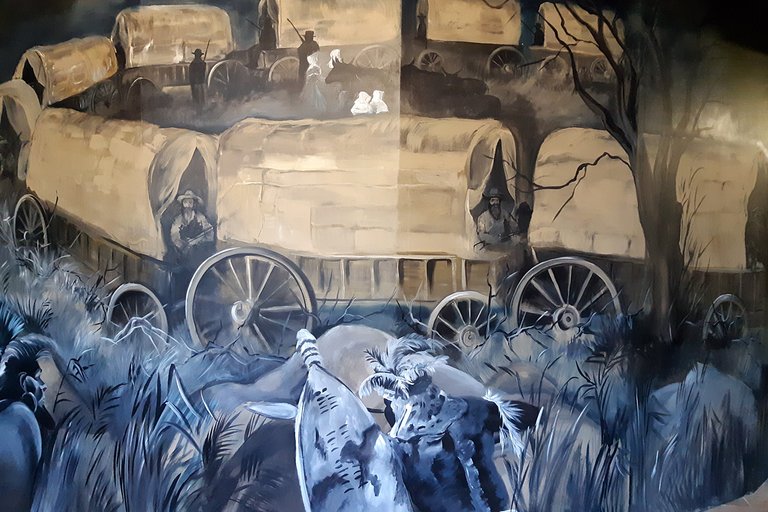
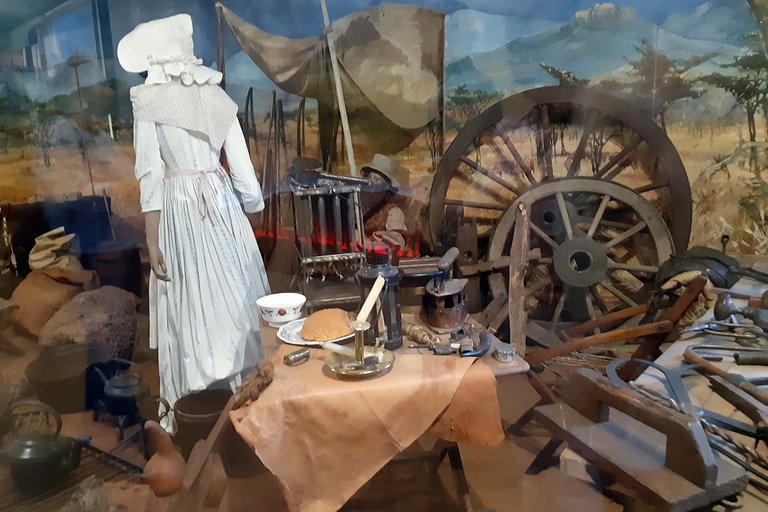
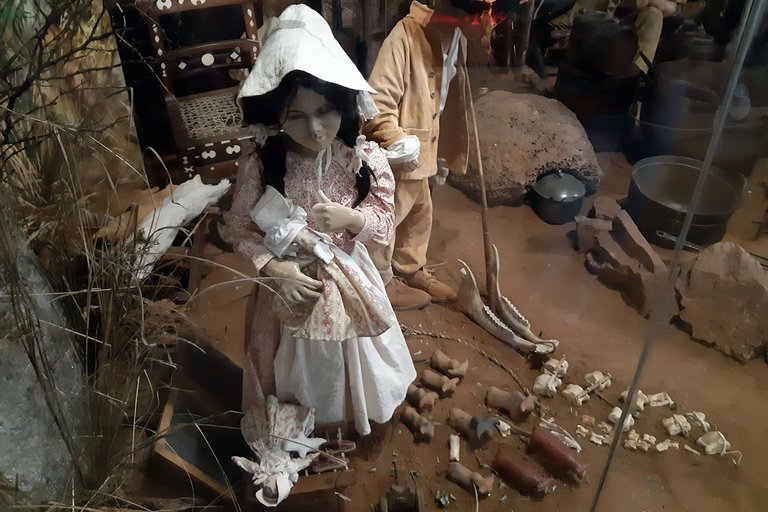
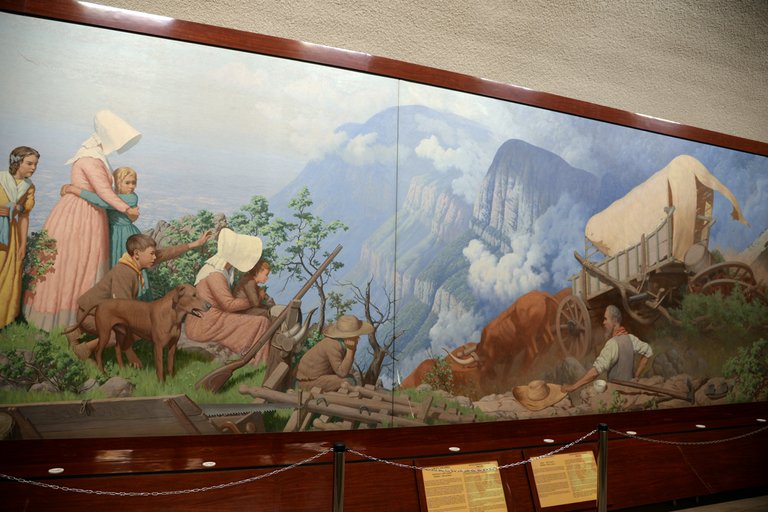
On the ground floor there is a small museum. After the visit to the top floor, we went to the ground floor for the exhibitions here. I have only added a few photos, but the exhibitions here are extensive. Relics from some of the trekkers. An embroidery of several meters depicted the Voortrekkers story from the beginning to the end. Art exhibitions etc. There is plenty to look at down here too. The building does look impressive from the outside, but the inside was just as impressive.
Please do follow if you want to keep up with my next travel story. Any upvotes or reblogs are hugely appreciated!
Latest travel story, check out:
https://ecency.com/hive-117778/@digi-me/the-smoke-that-thunders-the
U.J
Kristiansand, Norway
All the photoes are mine, Ulla Jensen (flickr, Instagram and facebook)
[//]:# (!pinmapple -25.77633 lat 28.17581 long d3scr) [//]:# (!worldmappin -25.77645 lat 28.17533 long The history of the Voortrekkers come alive in Pretoria, South Africa d3scr)Follow us for our street art contest and blogs about travel, art, photo, crypto & gaming

Congratulations, your post has been added to the TravelFeed Map! 🎉🥳🌴
Did you know you have your own profile map?
And every post has their own map too!
Want to have your post on the map too?
- Go to TravelFeed Map
- Click the create pin button
- Drag the marker to where your post should be. Zoom in if needed or use the search bar (top right).
- Copy and paste the generated code in your post (any Hive frontend)
- Or login with Hive Keychain or Hivesigner and click "create post" to post to Hive directly from TravelFeed
- Congrats, your post is now on the map!
PS: You can import your previous Pinmapple posts to the TravelFeed map.Opt Out
Congratulations, your post has been added to WorldMapPin! 🎉
Did you know you have your own profile map?
And every post has their own map too!
Want to have your post on the map too?
Sending Love and Ecency Vote!
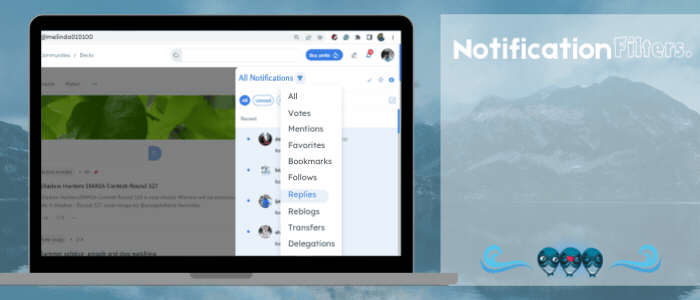
Thank you sir :)
!LOL
lolztoken.com
He lost interest.
Credit: lofone
@digi-me, I sent you an $LOLZ on behalf of curart38
(1/8)
NEW: Join LOLZ's Daily Earn and Burn Contest and win $LOLZ
Hiya, @ybanezkim26 here, just swinging by to let you know that this post made it into our Top 3 in Travel Digest #2247.
Your post has been manually curated by the @worldmappin team. If you like what we're doing, please drop by to check out all the rest of today's great posts and consider supporting other authors like yourself and us so we can keep the project going!
Become part of our travel community:
!PIZZA
!LOL
!ALIVE
lolztoken.com
A ques-idea.
Credit: reddit
@digi-me, I sent you an $LOLZ on behalf of cryptoyzzy
(2/10)
Delegate Hive Tokens to Farm $LOLZ and earn 110% Rewards. Learn more.
$PIZZA slices delivered:
@cryptoyzzy(2/5) tipped @digi-me
Thanks for the memories - a short trip from where I went to high school over 50 years ago
🙂
Congratulations @digi-me! Your post made the TravelFeed team happy so we have sent you our big smile. Keep up the good job. 😃
Thanks for using TravelFeed!
@for91days (TravelFeed team)
PS: Did you know that we have our own Hive frontend at TravelFeed.com? For your next travel post, log in to TravelFeed with Hive Keychain or Hivesigner and take advantage of our exclusive features for travel bloggers.